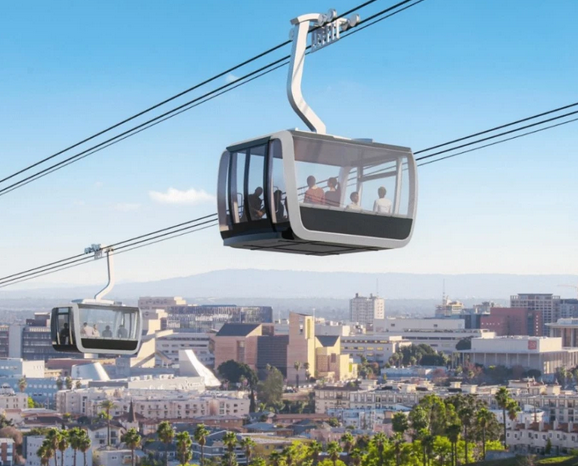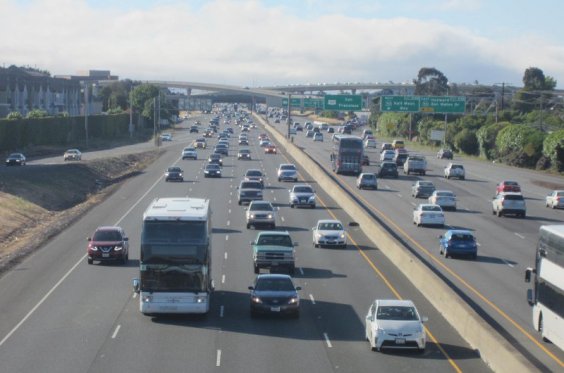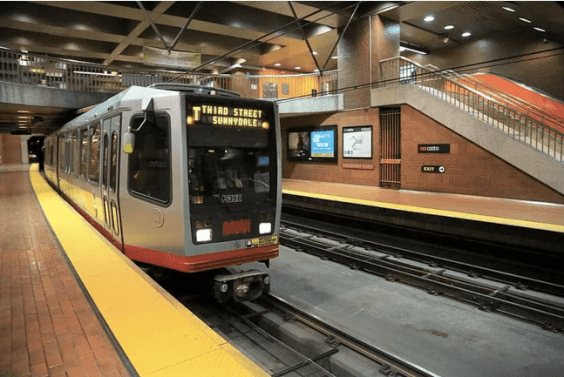Note: GJEL Accident Attorneys regularly sponsors coverage on Streetsblog San Francisco and Streetsblog California. Unless noted in the story, GJEL Accident Attorneys is not consulted for the content or editorial direction of the sponsored content.
The sun came out for a few brief but heartwarming hours when advocates, community organizers, and city and agency staff gathered to share a hearty meal and celebrate the announcement of a grant of $700,000 from the ride-hail company Lyft to the city of Oakland.
The money, the first such grant offered by Lyft to a city, is a big chunk of a $1 million initiative led by TransForm, an organization focused on increasing affordable, healthy transportation options throughout the state, to plan and implement several projects in East Oakland. Lyft, TransForm, and the city will work together to raise the remainder of the money, which will go for three programs:
- One is a community-driven "placemaking" effort. It will bring together local organizations to guide a participatory design process around future bike-share stations in East Oakland. Lyft, which bought Bay Area bike-share company Motivate, has plans to expand bike-share into the area, and local residents have already expressed interest in having bike-share in their community. What has yet to be decided is what that rollout will look like, where bike-share stations will go, and what form they will take. This open-ended effort could redesign bike hubs, create parklets, or bring forth new projects/programs based on what the local community wants.
- The second part of the initiative will support organizing by the East Oakland Collective to find out what community members need to improve affordable mobility in other ways. The plan is to create a pilot program that could include subsidized AC Transit passes or Lyft fares, bike-share or e-scooter share memberships, or other ideas to be determined in the process.
- Another part of the initiative--about a third of the total funds--will go to a bike lending library designed and run by Scraper Bikes. For years, that local bike collective has been working with TransForm and the city of Oakland on improving access to and safety for bike riders. The Scraper Bike Team helped the city expand access to Oakland's low-income bike-share membership. They also brought together community members to design an unusual, center-running bike lane along 98th Avenue in East Oakland. According to Champ, one of the group's founders, the library will allow residents to check out bikes on a long-term basis as well as offer bike repair training, with an eye towards job certification and increasing transferable job skills.
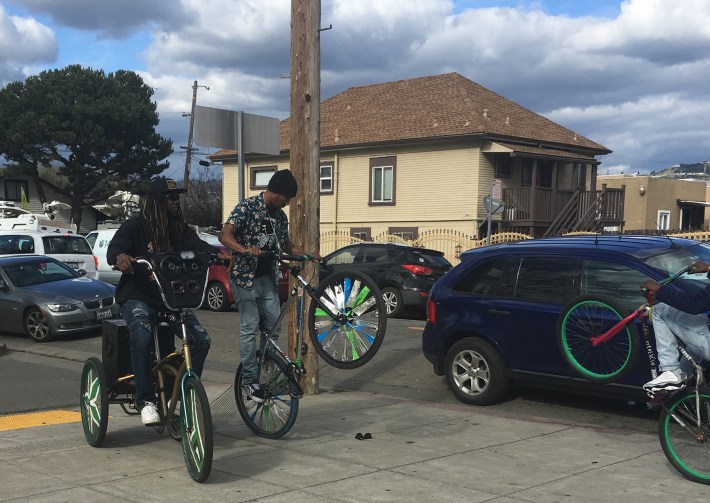
Joining in the celebration were Oakland Mayor Libby Schaaf, new local Oakland city councilmember Loren Taylor, Lyft CEO John Zimmer, and the company's chief policy advisor, former U.S. Transportation Secretary Anthony Foxx. Schaaf called out the "amazing, talented Scraper Bike Team" for special notice: "You make us so proud!" she said.
Councilmember Taylor pointed out a key reason to invest in low-income communities like East Oakland. "It's more expensive to be poor than to be wealthy," he said, "and transportation is one of the biggest expenses for low-income people."
Clarissa Cabansagan, New Mobility Director for TransForm, spoke of her organization's hopes for the initiative. "Our cities have been built around cars, and we have distributed transportation benefits based on race," she said. "Now, we have the power to shape our communities. And justice looks like investments in long-neglected communities."
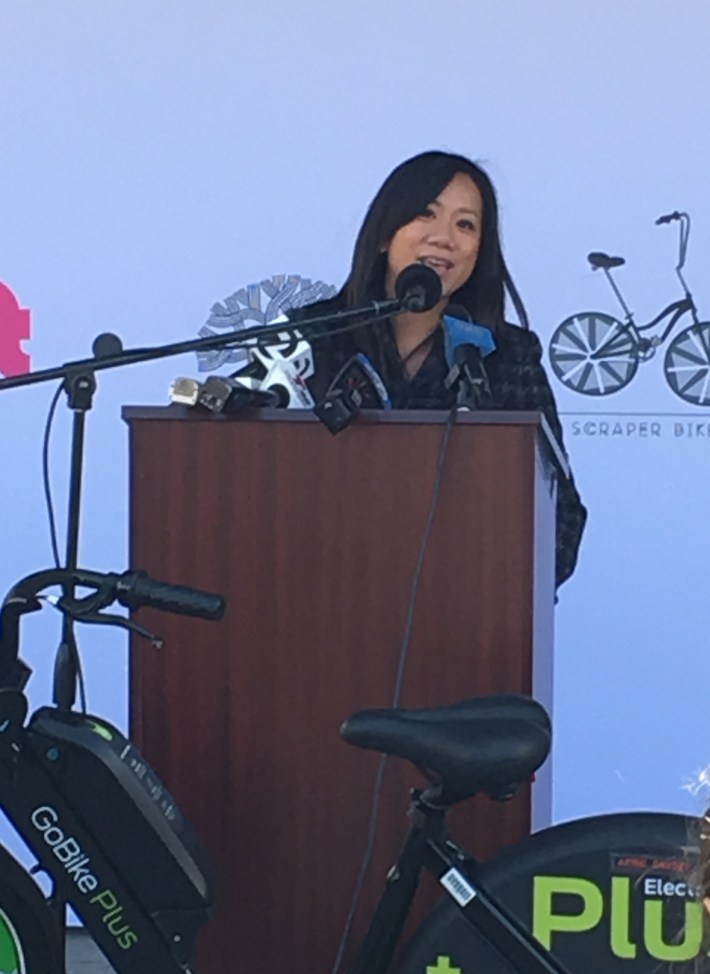
"This partnership didn’t just happen overnight," she said. "It has been a result of years of building trust and relationships in communities overburdened by inequitable planning decisions."
"We’re proud to stand alongside Scraper Bike Team in this work," she said, extolling the work the partnership with them has already achieved. Scraper Bikes helped in the outreach for bus rapid transit, participated before bike-share "hit the ground" in Oakland, worked on equity outreach for the bike-share system, and are "changing the game on how bike planning can and must prioritize the needs of black and brown communities," she said.
"The Oakland Department of Transportation has said they will use an equity lens in their planning," she added, "and TransForm will hold them to that."
Lyft has had a community grant program for the last year, but most of those grants have been awarded to give people rides on Lyft. While discounted Lyft fares may end up being part of this initiative, that is not its focus.
"This partnership exemplifies a shift that’s desperately needed in our cities," said Cabansagan, "and we’re hoping to catalyze similar efforts across the nation."

